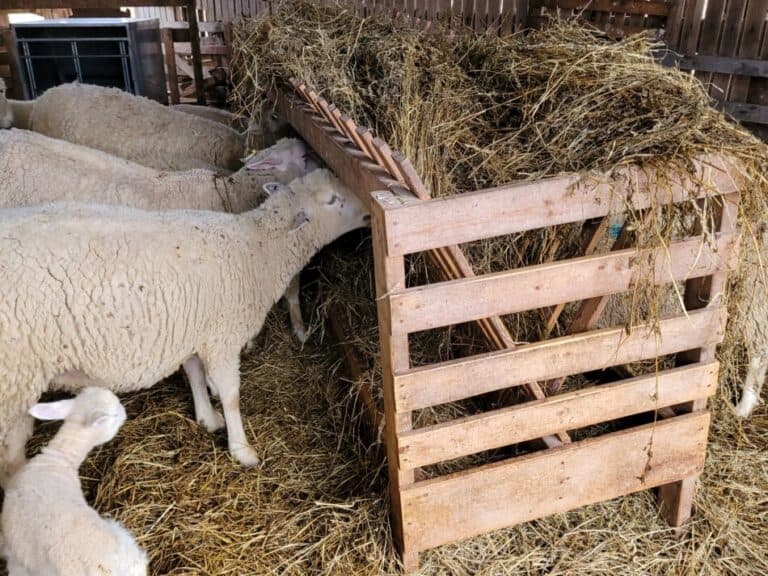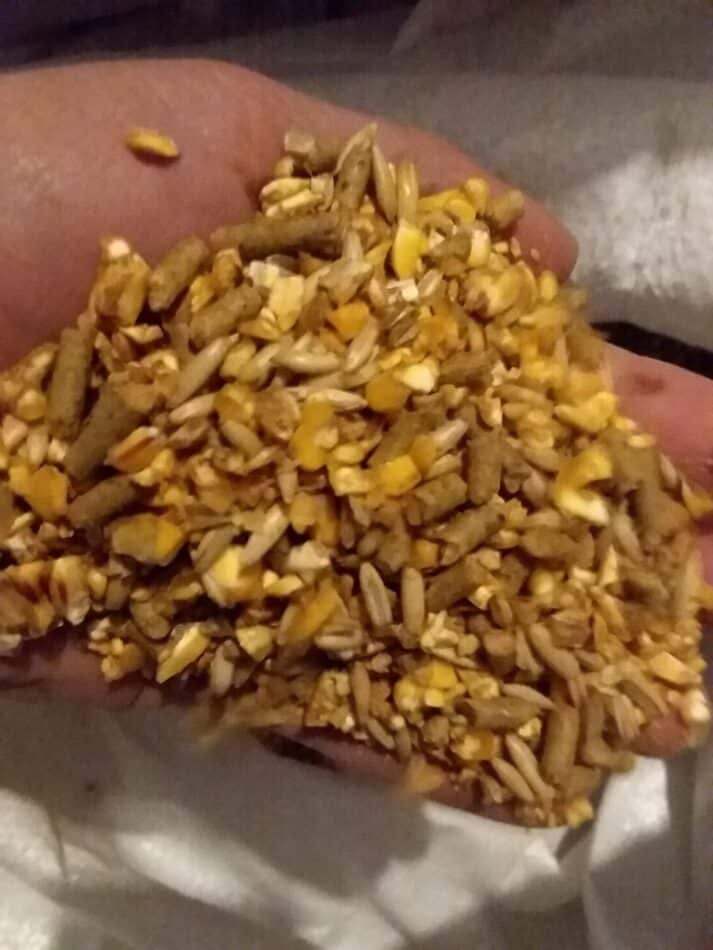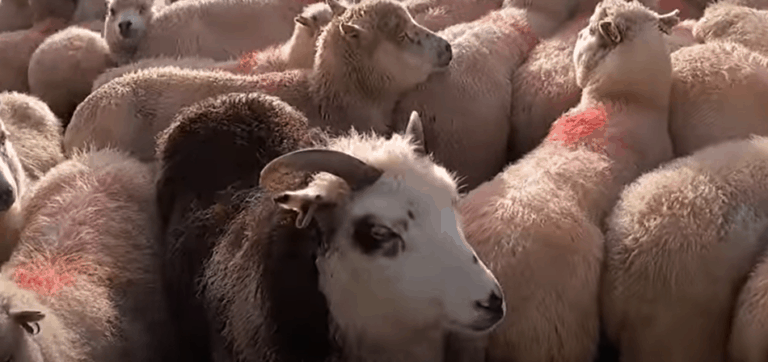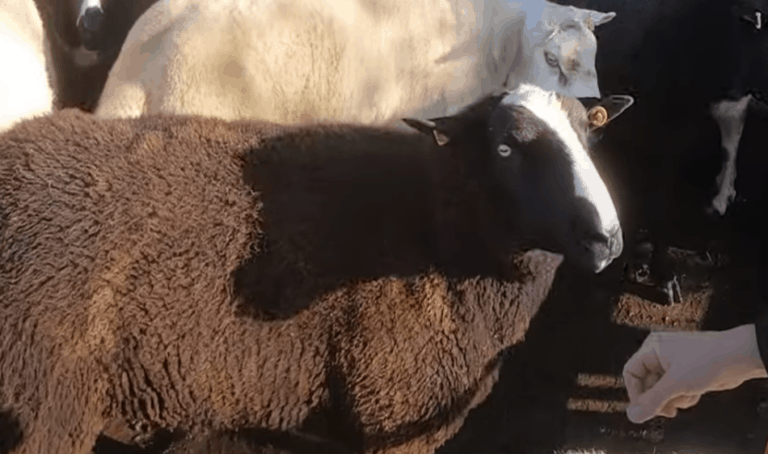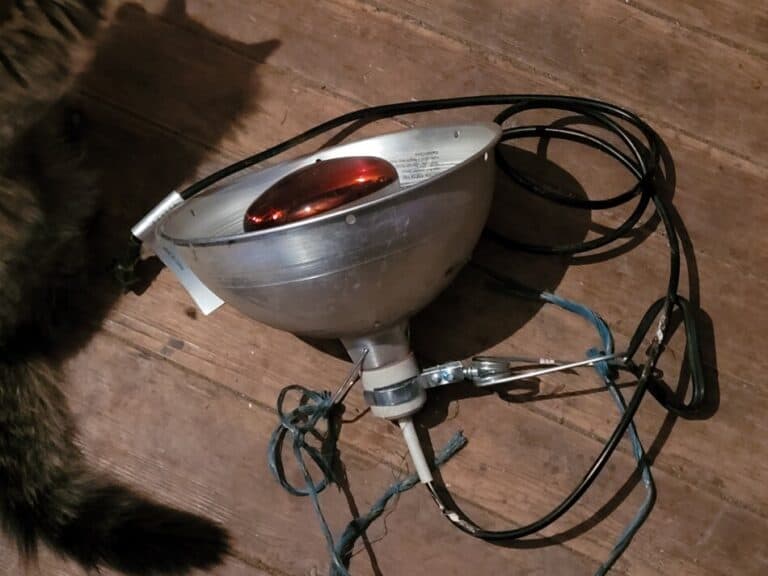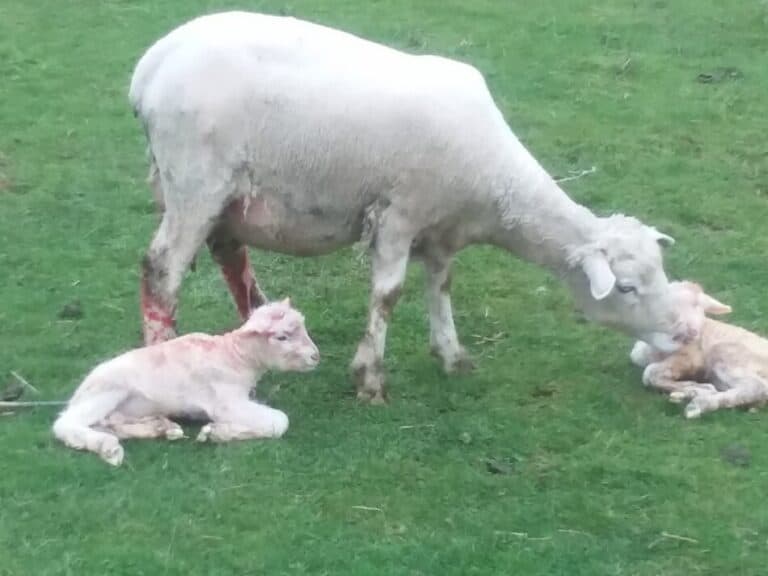7 Big Disadvantages Of Raising Sheep
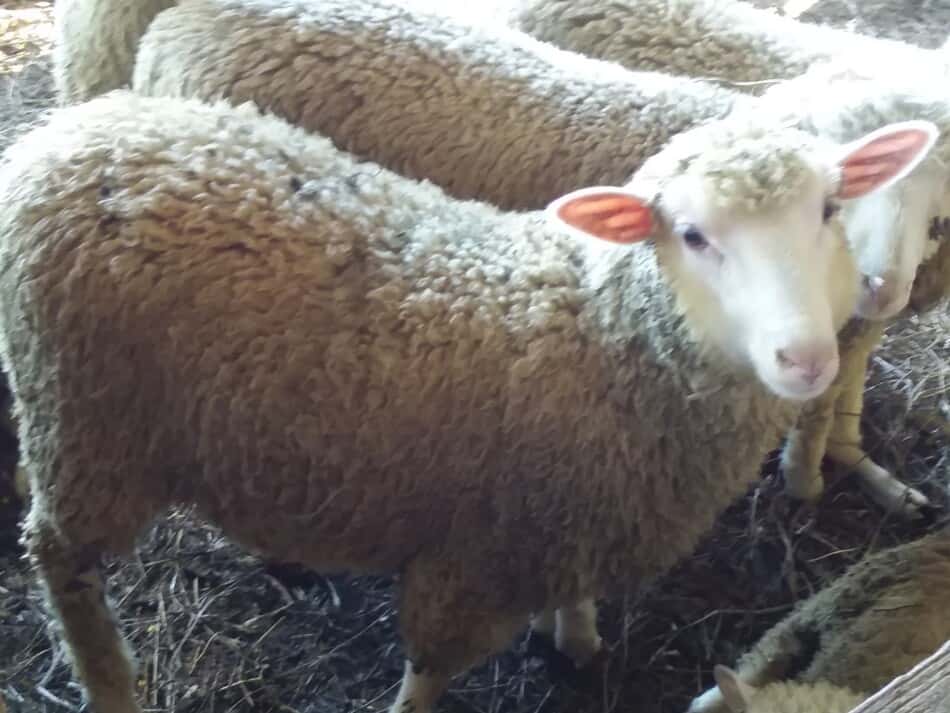
Sheep are not for everyone or every situation. Along with the great aspects of sheep, like being amazing grass eaters, come some other not so great aspects to raising sheep that you’ll want to consider before you get started with your first flock.
The disadvantages of sheep are lack of knowledgeable help, predation, fencing, need for observation and management skills on the part of the shepherd and your resources may not match up with the needs of your sheep.
Raising Sheep For Profit: Let’s Look At Some Numbers is an article I wrote going over the budget for your sheep, including how to figure the costs and returns for your situation.
Not many knowledgeable vets or neighbors for sheep
When you are getting started with sheep, you’ll want to find a knowledgeable vet and folks around you that have experience successfully raising sheep. Depending upon where you are, that can be tough.
Sheep are simply less popular, as in less total head in the country, than other livestock so it makes sense that the knowledge base, locally and vet wise, would be larger for the more popular animals.
Small ruminant vets for sheep farmers are hard to come by
Starting off with the veterinary knowledge, vets are trained in all manner of animals but tend to have minimal training in small ruminants, including sheep and goats.
This is simply due to there not being much need for veterinary services for sheep compared to the vet needs for more popular animals like cattle or pets.
Since small ruminants are becoming more popular, there will be more need for vet services for sheep, which will have vets seeking out small ruminant knowledge to help them with their clients needs.
The good news is, vet knowledge of sheep is becoming more common. The not so good news is we are not caught up with the more traditional sheep raising countries, like the UK quite yet, but we are headed in the right direction.
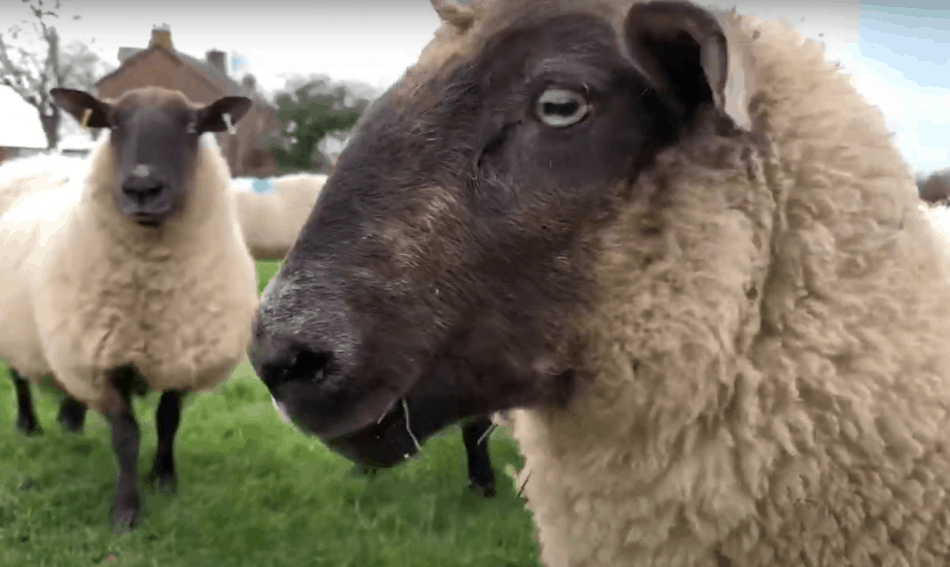
Local knowledgeable help from neighbors is unlikely with sheep
Notice I wrote knowledgeable help. People who have unsuccessfully raised sheep are not the folks you need to be getting advice from!
You need to be talking with shepherds that are successfully raising sheep the way you want to raise your sheep. Look around, these folks are out there.
Depending upon your area, you may be able to find tons of help locally. This would be ideal. But, if you are not one of the lucky ones in this aspect of sheep, ask around at the farm store or online. Tons of folks love to help and talk sheep.
Pros And Cons Of Raising Sheep gives you the good and the not so good of raising sheep.
Predation of sheep can be severe
Fortunately for us, we do not have huge predation issues with our flock, but I know some areas do.
Predators are looking for the easiest meal and sometimes your sheep are looking pretty easy to catch! We solve this with electric netting, but many folks use livestock guard dogs as predator control.
You should know that if all of your neighbors have predation control in place, you’ll need to have a plan, as well.
Another not so commonly thought of situation is if you are the only farm or place with livestock in your area, this means you’ll get all of the attention from unattended dogs or predators.
I’m a dog person, so I’m not singling out dogs as a problem. I’m just pointing out that when you think of predation, your mind goes to wolves or cougar, but for your area the main sheep predator may be a local dog.
Sometimes problems with sheep predation are easily fixed. For us, using electrified netting seems to keep out the foxes (our main predator), for you maybe a guard dog or simply bringing your sheep into the barn for the night.
If you are concerned about predation in your area, look to Texas A&M, they have great resources on guard dogs and predation of sheep. This is a link to their site. Be sure to check out their instructional video series, as well.
Sheep need more extensive fencing than cattle
Sheep thrive on pasture! We have our sheep out 365 days a year, which requires sheep specific fencing that is much more involved than something easier to fence, like cattle, would require.
To be clear, sheep fencing does not need to be overly tough or sturdy, it just needs to be more extensive.
That old woven wire fence that has been around your pasture for nearly ever could be great for your flock, whereas it would be soon demolished if you decided to keep a small herd of cattle.
A single strand of electric will not keep in sheep. Some folks are using single strand electric to divide paddocks for sheep, but that is not the perimeter fence! The perimeter fence is multi stranded and much more extensive.
As mentioned above, we keep sheep on netting, year round. It is doable and works well for us. However, back in the days when we were cattle farmers, a single strand of electric kept the cattle in place. Not so for sheep.
Netting For Sheep gives you the full scoop on using electric netting for sheep fence.
Sheep require keen observation by shepherd
Of all the disadvantages of sheep I think this is the one that people miss, but it is the most important! The health of your sheep and your wallet depends upon you being a keen observer of your flock.
When you hear stories about someone coming home and having “no idea what happened, the sheep is just dead”, this is what I’m talking about.
While you can come home to a dead sheep, like in the case of bloat, it’s more likely that what has happened is the sheep has be going downhill for a few weeks and it was able to “fake it” well enough so you didn’t notice.
Once a sheep is obviously having problems, recovery is tough. As long as the sheep is trying to fake her way through you can help her. But that’s the catch, how do you spot the faking?
The way you spot problems before they get big is to spend time with your flock so you know what is normal for them and what is unusual, then go check.
It is as simple as when all of the sheep are laying down and one is standing, check her out. Any sheep that is not chewing her cud when all the rest are happily ruminating away needs looked at.
You’ll learn how to see which animals need your attention when, with time and practice. So really, the observation problem is not a problem, it’s a lack of time and attention on the part of the owner.
All beginners start out knowing less than they need to, this is what it means to be a beginner! The beginners who end up as successful sheep farmers in a few years, learn their sheep by daily spending time with the flock.
Is Keeping Sheep Easy? shows you the things your sheep need from you!
Flock needs are variable throughout year
The management needs of your sheep vary throughout the year. Sometimes you are a midwife, all about lambs and helping with birth. Then you are a forage producer, all about high quality grazing for lamb growth and ewes milking.
Next is growing weaned lambs and you’ll probably have some deworming thrown in there a few times during the summer.
Now you’re thinking winter feed and getting the ewes ready for another breeding season after you’ve sold the lambs, of course!
None of this is tough to do, but it is a constant dance that requires attention and in the moment adjustments. If you like the same thing everyday, managing your flock’s needs will be tough, since the flock’s needs are variable.
For us, this is normal. Most days are the same, move fence and check the sheep.
The key is that when adjustments are needed, we make them. When those adjustments are needed changes with the year, based on weather, forages, how the sheep look, etc.
You’ll figure all of this out and having a mentor will help you head off the major problems, but there is always some individual farm adjustments that need to be made for the best fit between you, your farm and your sheep.
Management needed to head off flock problems
Starting out with a plan to take care of your sheep is key. We have a good idea of a few key flock care days that need to happen on time, which will set up the flock for success for the rest of the year.
Having a timely treatment plan will keep you ahead of most problems you and your flock are likely to face.
How did we learn this? By realizing what was the base cause of problems we were having and changing our management to fix the cause.
A big one we have noticed is feet. Keep your flock’s feet in good shape and some of the other problems you are likely to have just don’t happen.
This is one that makes sense when you think about how you feel with a hurt or sore foot. Not really into moving around a lot and neither are the ewes!
The big deal with sore feet in sheep is that it looks small but starts a cascade of potential problems, the ewe is sitting rather than up and eating so she is losing weight and not taking care of her lamb to start with.
Since she’s not eating like she should be, she’s more vulnerable to getting run down, which makes her more vulnerable to parasites. You can see how the problem gets bigger, but it also is easily fixed by handling any foot problems early.
Sometimes the flock management needs to unexpectedly change
Sometimes things do not go as you had planned. For instance, when a few of the lambs are looking a bit peaky, yikes! Chances are you are late on deworming. Get to it.
Needing to adjust your management is normal. You’ll get a rough idea of when things like deworming need to happen, but sometimes the year dictates a time that is not part of your original plan.
Readjust and make the needed changes.
Sheep may not fit your area/situation
Here’s one that most folks don’t mention, sheep may not be a good fit for your area or your situation.
The easiest way to raise livestock, whichever animal you are looking into raising, is to match the needs of the animal with the resources you have available, including things like money, forages, time, etc.
It could be for you that sheep require things that you are not able to easily provide. I’m referring to things like forages that easily grow in your area, climate, distance to an auction or processor or lifestyle obligations.
Examples of sheep being a poor fit for a situation
For instance, if your job requires you to be away from the farm for weeks at a time, I would be hesitant to get sheep, unless you can hire a competent care taker.
Or if you are so busy with the rest of your life that you do not have the time to hang out with the sheep for a bit everyday, to get to know their “normal” so you can see when they are not acting normal and may need some help.
If you don’t have the time to spend learning your flock, effectively managing them is going to be tough.
Another easy example is if your area has a short growing season and you will have problems getting winter or non growing season hay or that hay is prohibitively expensive.
